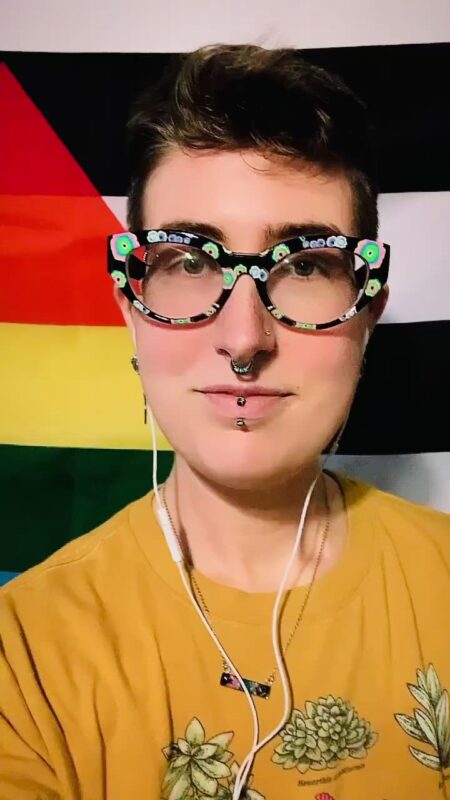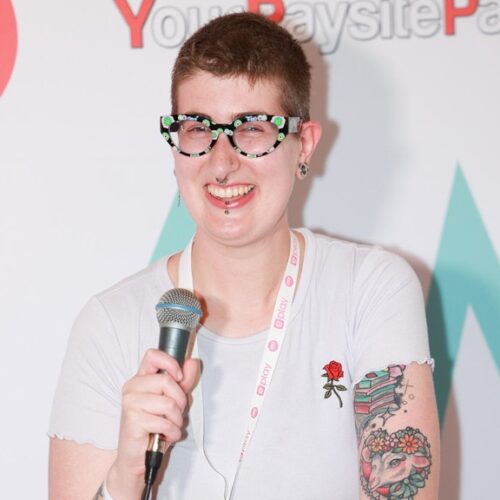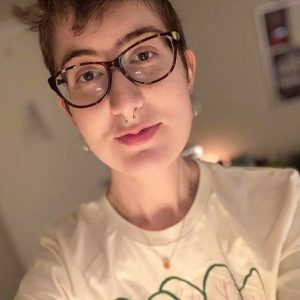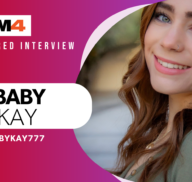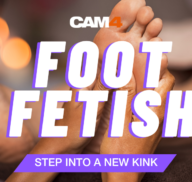Rachael Rainier Wells: Advocate and Therapist to the Adult Content Creator Industry
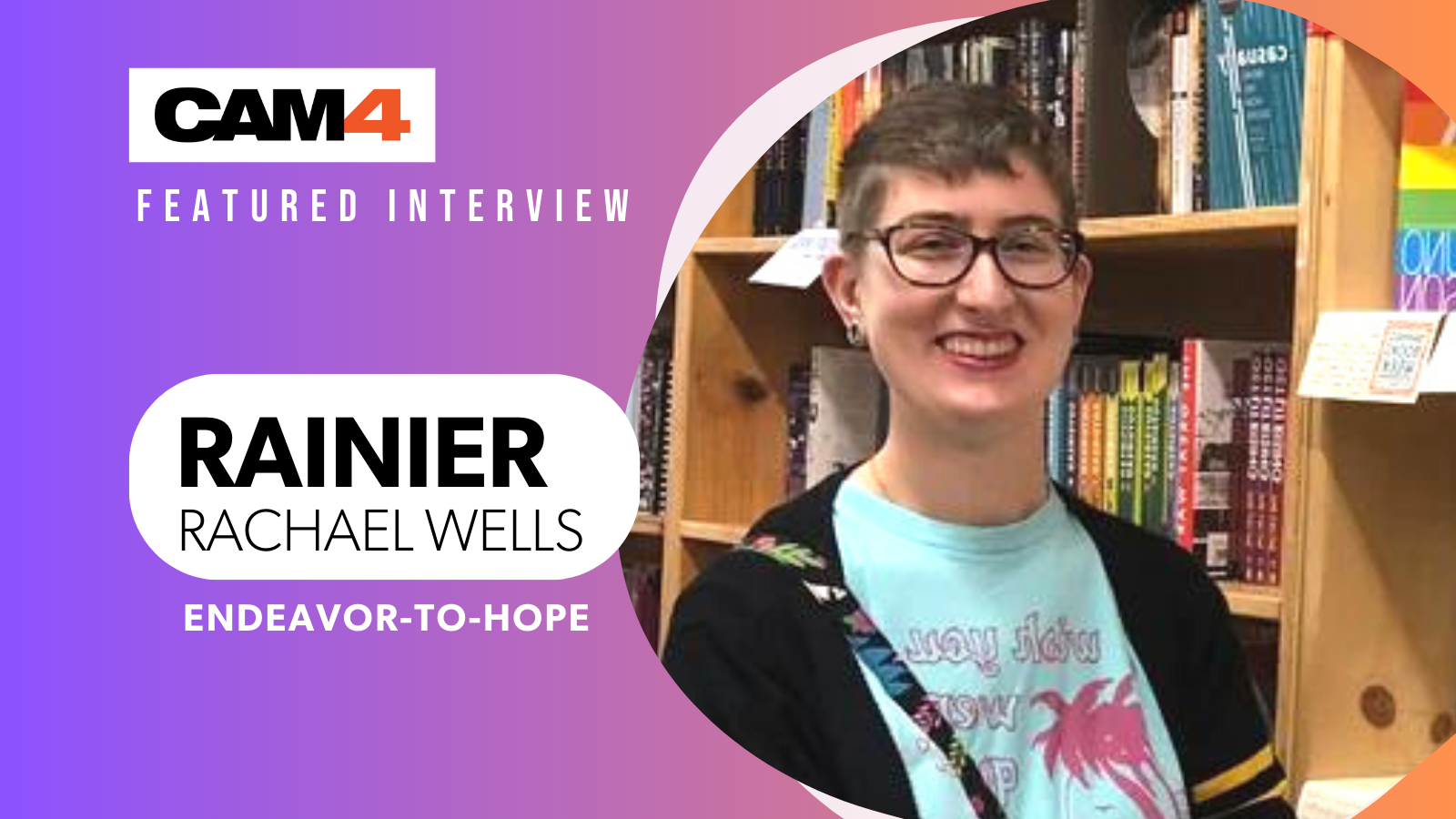
Rachael ‘Rainier’ Wells is an empathetic, driven and passionate Licensed Health Counselor who provides high-quality therapy, focusing on mindfulness and self-compassion. They are an autistic, joyful, non-binary therapist, who lives with EDS/POTS. Rainier works with a number of different clients specializing in providing support to those with life-sphere requirements, including creators who work in the adult entertainment industry.
With a well-established background in complex therapy needs, Rainier is proficient in the assessment and mental wellbeing support, through a number of different treatment options. They specialize in complex trauma and personality disorders, they work with lots of adult performers, and they are also an experienced yoga teacher and reiki master.
“With self-compassion and acceptance of life’s curveballs, we can help you live the life you deserve” Says Rainier
Rainier started their journey in the helping profession as a first responder in victim advocacy for abuse, and they are also a Pineapple Support affiliate. Rainier believes in an anti-establishment approach, pushing for change on a corporate level, and equality for all. They are a speaker for RAINN’s Speakers Bureau, having done so for over 10 years, and they are also a Trans Lifeline committee member.
Everyone is welcome to receive support from Rainier, and they are adept at keeping clients in the loop about potential add-on treatments that are available. Click here for more information about their services and for details of how to contact Rainier.
CAM4 recently interviewed Rachael Rainier Wells
Read below or watch the interview to gain more insight:
Please let us know the scope of work that you perform, and your entry into this world.
The type of work I do is to hone in on complex PTSD, borderline personality disorder, and dissociative disorders. I do a lot of work with the LGBTQ+ community, and specifically the trans community. I simply work with any population that’s been marginalized, such as neurodivergent people. The largest population that I work with are people in the adult industry who are affected by any of the aforementioned experiences in their life.
I myself am non-binary, I’m on the autism spectrum, and I also deal with chronic disabilities. I like to think that my personal and professional experience can work well together in order to be helpful to clients. This is particularly helpful for clients who want to work with somebody where they don’t have to explain themselves to me.
How long have you been providing this type of work?
I’ve been providing therapy for almost ten years, and I’ve been licensed since 2019. I’ve been working with the adult industry for quite a while, even before I was in this field. It just drew itself to me, since I was dealing with it through my victim advocacy work. I was being put on cases for those in the adult industry because I had a certain level of tact with it, which other people didn’t. Therefore, I’ve honed in very strongly on this over the last five or six years.
How do you feel about the existing stigma that is attached so much to those working in the adult industry today?
I’ve always rejected that mentality, because I feel that it comes from a savior complex. When people want to apply their own ideas about needing to help someone, I personally think that it’s them projecting their own lack of knowledge. It’s usually about their own freedom, sexuality or expression that they don’t have, and they want to find ways to pity people.
Another fact that would be remiss of me not to mention, is that a lot of us are walking around with trauma. Some people just happen to be in the industry, and are using their work in the industry to transform their relationship with themselves, through their body. They do this in a way that provides themself with a great sense of boundaries, comfort, and care for themselves. It’s a lot more revolutionary than people know.
What is your definition of diversity in our modern world today, in its broadest sense?
I believe diversity means that we’re just all different people, and most of us have some level of overlapping characteristics or identity pieces, and they’re all going to affect each other. Therefore, if somebody is black, and is a woman who’s a lesbian, then these pieces are going to correlate with one another, and they’re all going to correlate together. That’s what diversity means. It means that everyone has some sort of internal experience or background, and some people have more than others. Ultimately, we all have something to offer and share, and we are all deeply different, yet similar.
Can you elaborate on what diversity includes, in the things that make us different?
There are countless pieces to diversity. The basics of which are race, ethnicity, religion, and socioeconomic status. We may also ask whether, for instance, someone is a first generation college student or not, or whether they deal with a visible and physical disability, or if there’s no disability? Of course there is also gender identity, sexual orientation, and immigrant status. But it goes far above and beyond that, since there are so many aspects, more than I can list here.
I think we need to look deeper as a society, because sometimes it seems very performative and virtue signaling when we are hiring people. For example, are you actually providing a space that people would want to exist in as diverse humans, or are you just trying to lure them in, in order to project a nice image to other people. In most cases, they haven’t actually done the work needed to create a safe space, or to at least function as a place for people of different experiences.
When it comes to adult platforms, how can they ensure that they are supporting diversity, and are being truly diverse in the content that they offer?
The primary thing that platforms can do, is to be a little bit more engaging with people of lived experiences. If they need more perspective on a certain group of people, then try pulling from the actual people that are from those backgrounds, as long as they are comfortable talking about it. Of course, people don’t owe us an education on something. Getting an education from somebody that doesn’t have a background in it, can be a little suspect, because we might not be getting the full story. In this case, it’s just handed to us by somebody that doesn’t actually understand the nuances of it.
Creating engagement can be done by offering time with creators, maybe through open forums. If there is something to show about diversity on webpages, and in your visuals and imagery, then make sure that you know what’s populating the front of your site. It has a lot to do with making communication with the platform accessible to creators. That’s really where the magic happens, by creating a feeling that they can reach out. Creators need opportunities to have a chat, or communicate with each other. Maybe sometimes it needs to be with the higher-ups, so that it feels like everyone’s on the same page, and that creators don’t feel a million miles away. You want to provide a place where creators can have an impact on the platform that they work and exist on.
How does diversity benefit the world that is seeking out adult platforms for an education in sexuality and anatomy – How does diversity make things better?
This can be done by ensuring that people of different backgrounds are shown, or are showing up higher in search results. This lets everyone realize that there are people who are disabled who have sex. It lets them know there are people of color that have sex, but they don’t have to be a specific category or name. It simply means those people may have different religious experiences, or have different orientations, or they have different body types and backgrounds. The key thing here of course, is that everyone has sex, to some degree.
It’s crucial to see everything. It’s crucial to see nipples of different shapes and sizes, on any gender body. To see different colors, or to see different things, such as scars, or whatever it may be. When it comes to vulvas and penises, all those sexual things come in different shapes, sizes and angles. There may be layers of extra skin, or not as much skin, or someone may be circumcised or not. We need to see all of these things, because when we see it, we know that it’s just a part of the human experience.
There’s something so deeply saddening and painful when you feel like it’s just you. You think that you’re just the weird person that has a specific body type, or a specific thought or experience. It’s very isolating, and that narrative can be so toxic and degrading to our ability to connect, or to pleasure ourselves, or be with others.
Please let everyone know where they can connect with you, be it on social media platforms or anywhere else that you exist and are open to communication.
My best preference would be via email. My email address is rainierlmhc@endeavortohope.org You can look me up via the links below, or reach out to Pineapple Support and they will get you in touch with me, and I always respond!
.
CONNECT WITH RACHAEL RAINIER WELLS
Therapy Den Profile: @RachaelRainierWells
Psychology Today Profile: @RachaelRainierWells
Pineapple Support Twitter: @PineappleYSW
Pineapple Support Instagram: @pineappleysw
Pineapple Support Facebook: @pineapple.yoursafeword
Pineapple Support Website: PineappleSupport.org


















